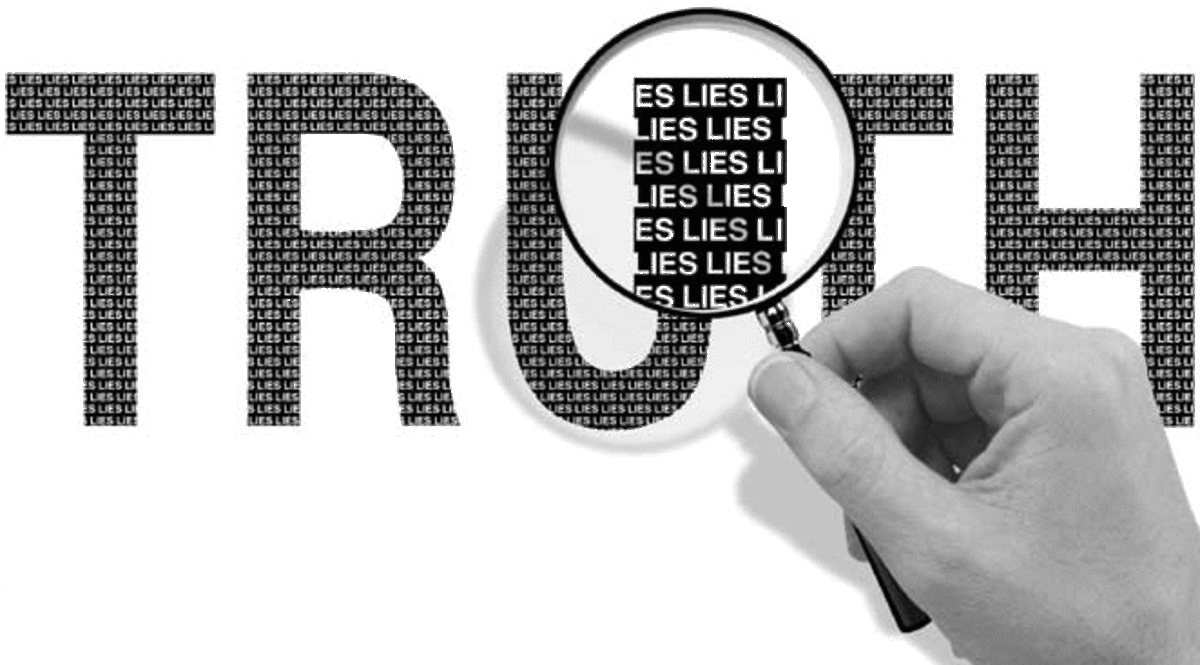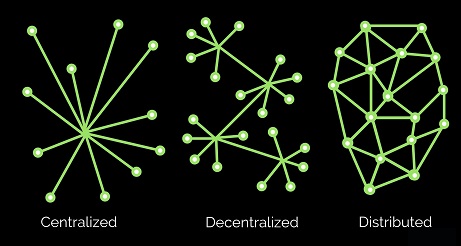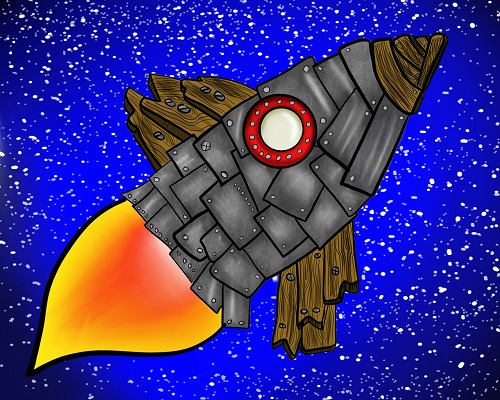Centralization as a Testnet

The Trust Debacle
We hear the same tired old arguments over and over in crypto:
- That's centralized.
- That's not decentralized.
- You can't invest in that because of XYZ.
- You should invest in that because it's decentralized.
- Innovation.
- Disruption.
- Fiat
- Disrupting fiat with innovative disruption.
- Blah blah blah blah blah!
Most people have no idea what they are talking about.
Everyone knows that 'decentralization' is 'good', but they don't know why it is good or what problems that it solves. Then when they try to explain the concept or extrapolate it they end up being completely wrong because they don't understand the foundations of what they are even talking about.

A decentralized system looks exactly the same as a centralized system, just with more centralized nodes connected to each other. That's because centralization and decentralization are not tangible measurable things, but rather fully subjective spectrum and open to extreme interpretation. Central banks are decentralized because there are a lot of them all connected to each other, and each one is connected to several banks.

Four central banks connected to 20 banks is decentralized.
So it's not really all about decentralization, is it? There are way more variables that come into play that most people conveniently ignore because that would make the problem far more complex and harder to navigate.
Take Hive for example.
Bitcoiners look at Hive and claim it is a centralized shitcoin because there are only 20 nodes that control the entire network. Meanwhile Bitcoin has even less than 20 mining pools that control the entire network. However, the governance of Bitcoin is also split up into stake holders, node runners, and developers in addition to the miners, so the comparison doesn't even make sense in a lot of ways.
Hive is also controlled by stake holders and block producers, but we've also seen first hand how easy it would be for the underlying community to just break away and create their own fork if the situation warranted it. At the end of the day all cryptocurrencies are inherently centralized in distribution because we haven't even come close to mainstream adoption yet. Soon™
But what about the REAL centralized projects?
If we look at projects built on Hive like HiveEngine or LEOfinance, we can see that these things can get much much more centralized than Bitcoin or Hive or whatever else. Does HE / LEO have no value proposition because they are "centralized"? Of course these things have value. There are too many people running around thinking that centralized services can't have value. That is absurdist thinking.
What is the value of centralization?
There is actually very little drawback to centralized service. This is the default state. This is how we optimize and make things more efficient, by centralizing and streamlining them over and over and over again iteration after iteration.
The only drawback to centralization, is trust.
That is what we are scaling here in Crypto-land: trust.
That is the only thing that these centralized services are missing.
That is the only thing they can't compete with.
On every other metric, crypto loses.
And thus we can see that trust and the inherent corruption and exploitation that comes along with it is basically one of the biggest problems of society today. Hell, it was the biggest problem even in ancient societies like Rome and insert_empire_here. At a certain point all centralized entities implode under the weight of their own corruption. This is the problem that crypto seeks to solve. There are no other problems that need solving other than this one. It's the biggest problem in which all other problems are a derivative.
But what if you actually trust the person in charge?
Then there is zero drawback to centralization and every advantage under the sun. I for one trust @khaleelkazi quite a bit to continue grinding away day by day trying to build value for the Hive and LEO ecosystems.
There was even one day that everyone was joking around and Khal was creating custom emojis for anyone that asked. I jokingly posted this picture and it has been the :edicted: emoji in LEO Discord for over a year now.

Caption: "Moon"
More to the point Khal's emoji is a bit more dark humor:
:khalbus:

Yeah, because if Khal gets hit by a bus we are all wrecked over here at LEOfinance. That's just how it is. There is no one else to pick up the pieces, and that's fine. It doesn't have to be a robust decentralized system in the beginning, and we wouldn't want it to be that anyway.
The advantages in prototyping and experimentation and leadership and efficiency and focus and value creation are simply too good to just jump into a decentralized system that could get co-opted by bad actors. How silly do you think Dan Larimer feels for losing control of everything he's ever built? That's gotta be a weird feeling, and yet he just keeps grinding away trying to make a better solution. Admirable, but perhaps misplaced energy.
This is why centralized crypto is quite simply just an amazing testnet for prototyping and testing stuff out. We don't have to worry about decentralization until we scale up and start getting the attention of regulators looking to capture and control the space.

The more decentralized networks are acting as a shield for the centralized ones. There's a reason we don't see companies like Facebook or Amazon or Google launching a cryptocurrency. They are already too scaled up to avoid the regulators, and their entire mode of thinking is a centralized one of absolute control and regulation of intellectual property. Everything about these companies is the opposite of crypto.
And at the same time, just because a crypto or a community is centralized today doesn't mean it will be that way tomorrow. We are going to see this first hand many times down the road. Centralized dev teams will get their hands slapped or even shut down, but then the network will upgrade into a decentralized state and become unregulatable. This is an inevitability when it comes to scaling up. These things will either become decentralized enough to govern themselves or they will be captured by a small group and fail to scale.
There's a HUGE difference between a crypto that isn't decentralized today and one that can never be decentralized ever. How hard would it actually be to run the LEO network on multiple nodes on another network or on the second layer? Today, there is little advantage to putting in the work it would take to accomplish this development (and it's also probable that infrastructure will be built that makes the transition easier to achieve, IE Hive Application Framework). Ask again in five years and see where we are then.
Again, it's all a spectrum, and there's no reason to move into more decentralized inefficient chicken-with-its-head-cut-off territory unless it's actually necessary to do so.


LEO was able to launch a token on HE and then branch out to EVM. That's impressive. You know who CAN'T do that? Every single Big Tech company in the world. Even dozens of random famous people have been getting hit with lawsuits left and right for promoting random shitcoins. There's a reason NFTs became so popular so quickly (zero regulation and immune to securities law).
Are centralized networks inherently more risky than not? Yes. Do they get rugpulled often? Yes. Are they worthless? Of course not. Great work is being done every single day. Just because testnets aren't mainnets doesn't mean they are pointless. Prototyping is just as important as anything else in this arena. Everyone is looking for the secret sauce that will power that rocket ship to the moon.

Conclusion
Decentralization is a completely subjective spectrum. A coin that is 'centralized' today won't be if and when they manage to scale up. In crypto, decentralization is a requirement for scaling up, as ironic as that might sound (because scaling up is the biggest problem for an inefficient system). Constant tradeoffs are being made every day to try and find the perfect combinations that create the most value and galvanize the most people into the system.
The great thing about crypto is that it is an opt-in governance system. If you don't like how the government works, then take your value and leave. The attention economy is here, and the whole centralized vs decentralized argument is so misrepresented It's difficult to know which end is up.
Rule of thumb: like anything in capitalism, financially support the products and communities that you actually use and participate in. We all vote with our money (even more so in DPOS). Make your vote count.
Posted Using LeoFinance Beta
I think I saw it somewhere that says you can’t decentralized something without centralizing it at the beginning. I don’t know how right the person is but I feel it’s true, in as much as a system is said to be decentralized, there is an entity making sure it works perfectly, in Hive I believe they are witnesses. Just that centralization can be categorized based on intensity. An intensed centralized system is bad but at this stage I can say we are at the light intensed stage, which is the enough to label it decentralized.
Posted using LeoFinance Mobile
It all starts somewhere.
Bitcoin started with Satoshi as the only miner and only coin holder. It spread from there.
Posted Using LeoFinance Beta
Exactly, decentralization doesn’t start overnight.
Posted Using LeoFinance Beta
Good, I think the same
!PIZZA
PIZZA Holders sent $PIZZA tips in this post's comments:
@arthursiq5(3/5) tipped @edicted (x1)
Please vote for pizza.witness!
It was very interesting to read about the structure of blockchains, especially since everything happened very clearly. To be honest, I did not know this and did not think about the schematic nature of the circuits. Yes, even though money is involved in the Hive in the process of earning trust, but this is not his purchase in its purest form. This is, in part, the trust of a brother to a brother, if it is not Cain and not Abel).
Posted Using LeoFinance Beta
I agree with you on many points @edicted.
I think, because it is completely subjective and open to interpretation, decentralization is the most objective option because it is the only escape from a centralized system that is not able to provide the desired solution.
Where is the objectivity? No one has been able to give a definite answer. It's entirely because they feel free to do whatever they want with their assets. They are free to let go or hold their assets whenever they want.
The freedom to do anything and anytime on their own assets, they also have in a centralized system. But that's entirely up to each of us. It's just a matter of feeling free or bound, because in the end everyone wants to profit from the assets they have with whatever system applies to them.
When government is centralized (like in the U.S., with the federal government currently holding almost all the power, contrary to its founding principles), then the companies that are "too scaled up to avoid the regulators" simply co-opt the regulators to do their bidding. For example, as soon as Amazon was able to automate their processes so that they could profitably pay all their employees at least $15 per hour, they began intensely lobbying the central government to adopt a $15 federal minimum wage.
Large corporations welcome regulation because they are scaled up enough to absorb the additional costs and pass those costs along to consumers. However, small businesses cannot afford to meet all the regulatory burdens. As such, the regulations fully insulate the large corporations from any new entrants. They simply get to collusively play with their fellow oligarchs in a sandbox of their own making.
Many people in the cryptosphere fail to recognize the fact that lots of centralized entities competing against each other can be a powerful decentralized force for the good of society. The key is, as you say, for folks being able to opt-in and opt-out of those systems they like or don't like, and to be able to do that with minimal switching costs. It's the decentralized nature of individual consumers each choosing which systems to use and which ones to shun that fosters innovation and advancement (or, testnet prototyping, to use your terms).
Yeah free market where everyone is a producer and everyone is a consumer creates very healthy competition.
Some very key points.
There is going to be a combination of centralized, decentralized, and distributed. Not everything needs to be decentralized just like not everything has to go on blockchain.
What is vital is the totality of it all. We are building trusted systems. For some, that is centralized, others fully distributed.
Hive has more decentralization that most with both the node structure and token distribution. Is it decentralized? I guess it depends upon your definition and criteria for that.
Posted Using LeoFinance Beta
This post has been manually curated by @bhattg from Indiaunited community. Join us on our Discord Server.
Do you know that you can earn a passive income by delegating your Leo power to @india-leo account? We share 100 % of the curation rewards with the delegators.
Please contribute to the community by upvoting this comment and posts made by @indiaunited.
Your content has been voted as a part of Encouragement program. Keep up the good work!
Use Ecency daily to boost your growth on platform!
Support Ecency
Vote for new Proposal
Delegate HP and earn more
I got used to listing "centralized" as a "con" when describing a project, even though I don't necessarily think centralization is a bad thing.
Why?
Because I got tired of writing articles and then having some rando in my comment section fill the space talking about "its a centralized project."
Posted Using LeoFinance Beta
It will be interesting to see whether or not projects want to decentralize. At this point, there is a lot of centralization in Hive and I admit, we are trusting a lot of people for most of the projects. Like when outposts went down, it was down for days until the developer came back.
Posted Using LeoFinance Beta
Centralization is not so much the problem in the beginning as much as it becomes the problem in the end. So in other words it's actually better to be centralized ever moving towards decentralization.
The biggest problem on hive is that it decentralizes to a great degree alot of the early development. It in retrospect needed to centralize the beginning efforts such as hive.blog should have been run more like steemit.com in my opinion. The real truth is about delegation away from centralized power and authority.. the keyword is decentralized power.. wealth.. governance.
people don't really care about how we arrive there as long as it does and they see favorable results. That's why bitcoin myk will beat all crypto projects in the end. The reality of the situation is people don't so much care about control.. they care about you have more control than they do.. So the game is to decentralize the control to appease. The problem is crypto fails to do that but if you don't give people what they want you'll never be truly successful in a project. So economic states are subjective just as much as decentralization and centralization is.
Has nothing to do with efficiency or optimizing has to do with a false sense of fairness and because bitcoin myk can exploit that and you all don't know how.. it's going to lead eventually to your failing you'll all end up like terra luna in due time.
Posted Using LeoFinance Beta
This is one of the interesting things to me about Thorchain. Their system appears to be a centralized system that is moving wit purpose gradually to a more decentralized system.
At first they had code that was designed and maintained by a team who were anonymous yes but centralized. It seems they have endeavored to make it gradually decentralized in steps by designing in a slow and gradual decentraliztion. At first they created and held a majority of tokens and controlled their fate, but have since moved to gradually remove that control. At first there we're not many wallets, but they are encouraging more. At first little governance, but are moving to more distributed governance. Eventually as the system becomes more decentralized they ostensibly plan to surrender the keys. They also designed in controls to encourage balance in the centralization and ensure trust as much as possible.
To me this is the way to scale and progress towards moving towards the decentralization end of the spectrum.
Will it work out? I don't know but it is certainly the right idea and either they or some similarly designed project will end up very successful by finding some optimally efficient mix of centralization/decentraliztion.
The real problem is once that balance is found, it will quickly and dynamically change :-)
Posted Using LeoFinance Beta
You've trademarked soon you must know something lol on a serious note a buddy of mine was saying he wouldn't really get into hive which I still stand in debate with him on he was more into eth Blockchain type stuff which now he does have the debate with volume but he hasn't been around like I've been around hive is still growing but I do know what's come out of Hive and things like splinterlands, these NFT marketplace etc holds some popularity so. I think it's both good that we're on our way and where we'll go from here
Nice job explaining your position.
Posted Using LeoFinance Beta
My @v4vapp is centralised now and involves trusting me.
But the goal is to spread out out to as many other runners as makes sense for the scale it gets.
Because no single transaction is much more than $50 and most far smaller, this makes sense.